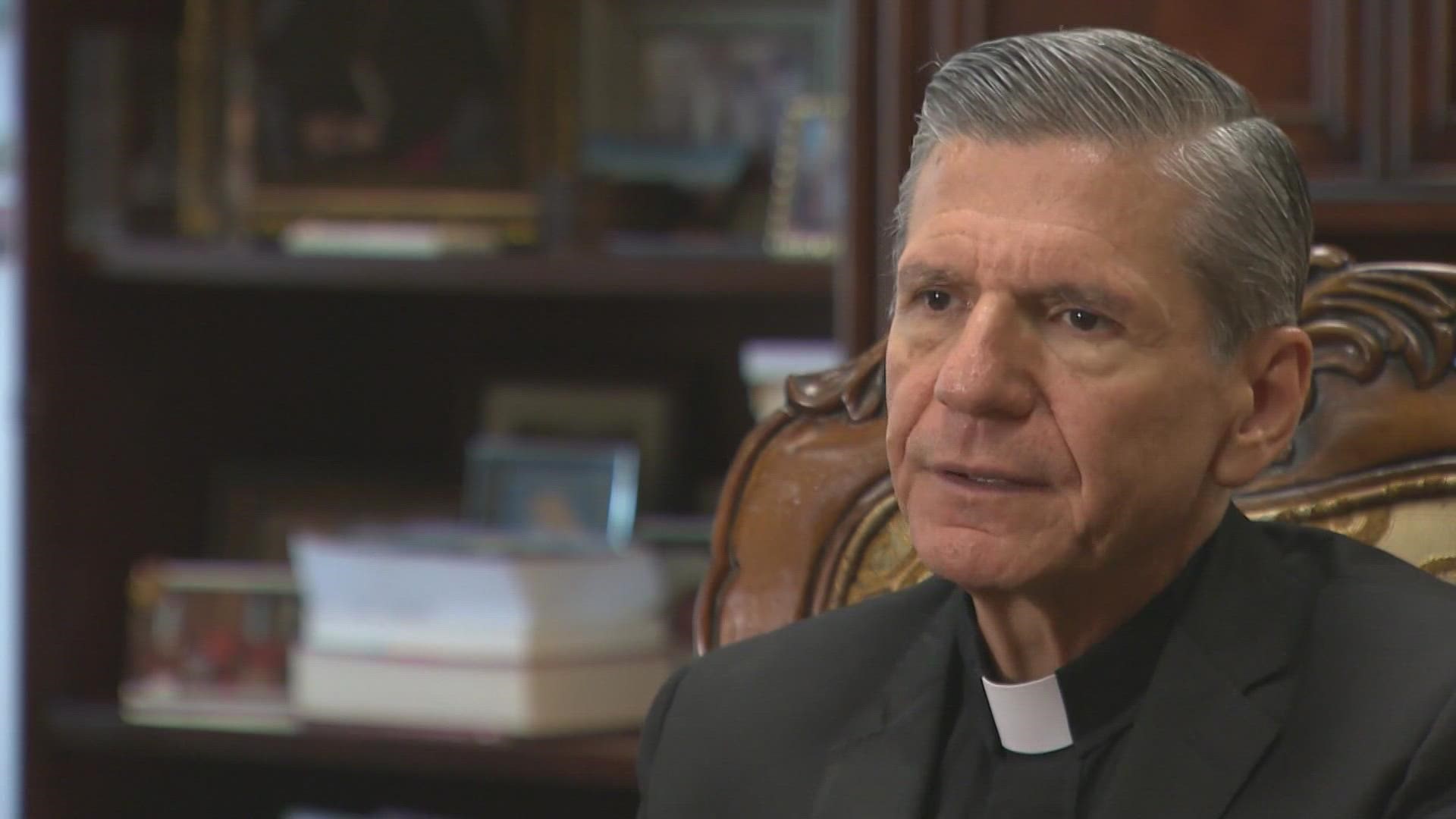SAN ANTONIO — Prayers and blessings came quickly for the people who survived a hot, abandoned 18-wheeler in southwest San Antonio earlier this week, many of whom remain hospitalized.
The archbishop of San Antonio, Gustavo García-Siller, said he rushed to the hospitals Monday evening when he heard the news. At six different medical facilities, he didn't know what to tell the front desk receptionists when they asked who he was there to see.
“I said, 'I don’t have any names… I’m here to see the people from the 18-wheeler tragedy,'” he recalled.
Escorted by law enforcement, the archbishop prayed over survivors.
“With all except one, I was able to say something knowing that they were not going to respond because they were intubated—they were hooked to machines, they couldn’t talk,” he said.
In the days since the 18-wheeler was found, García-Siller has been able to have a conversation with just one of them; 16 people were initially taken to San Antonio hospitals.
“I said, 'Are you from Guatemala?' and she smiled, and she said, 'Yes,' he said with hope in his eyes.
That smile was a much-needed glimmer of strength for García-Siller, who is still comforting families impacted by the mass shooting in Uvalde last month.
“She was helping (me) more than I helped her,” García-Siller said. “I felt a little bit of consolation myself with that smile.”
Not all of the survivors made it through. He recalled visiting with one man whose heart stopped three times, according to what he was told by nurses.
They did not believe he was going to make it, the archbishop said.
For three days, García-Siller has prayed for people he hardly knows. Meanwhile, a memorial on Quintana Road where the 18-wheeler was found grows, but names on crosses are nowhere to be found. That realization made the archbishop reflect on the erasure that immigrants coming through the southern border often face when entering into the United States.
“Many immigrants who have come here, they change their names or they have to use other papers because the system, the legal system, is not working," he said. "It’s like to lose their identity, that’s part of the plight of migrants and refugees."
Officials believe the people found in the 18-wheeler are from Mexico, Honduras and Guatemala. García-Siller believes they were all coming to the U.S. for a better life with more opportunities. They were likely fleeing danger from their countries, but they died here, the archbishop said.
“We are responsible. I am responsible, as a citizen of those injustices,” he said. “We don’t have the leadership to change; gradually, it could be, but (they need to be) changes that would be meaningful.”
On Wednesday morning, García-Siller was shown a picture of two young girls who died as a result of the heat-related asphyxiation. He said he couldn’t help but think of the talent and long life they should have had ahead.
“Why not try to find (legal ways to come into this country) instead of provoking people who we know that they are going to continue coming?" he said, in regard to lawmakers.
As people continue to mourn the lives lost, prayers continue for the people who died in such an inhumane way.
“God knows them. God knows very well their names, God knows how they can be happy now.”
The archdiocese is planning a vigil for 7 p.m. Thursday, starting from the Main Plaza downtown and ending at the San Fernando Cathedral.

